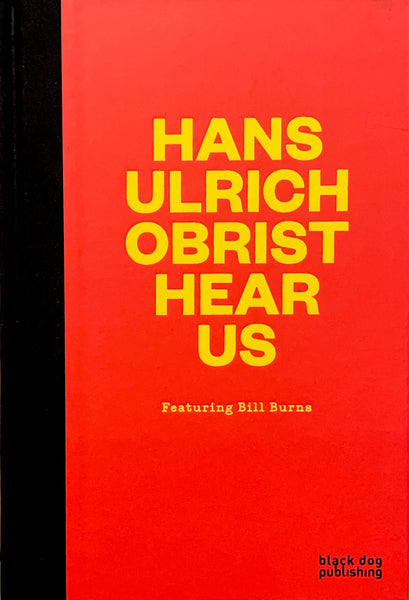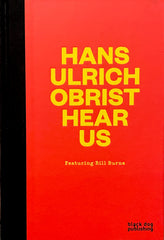Plug In ICA
Hans ulrich obrist hear us: featuring bill burns
In her Foreword to the publication, Dannys Montes de Oca Moreda recognizes that the after-effect of Burns' work is deeply disillusioning, breaking up and foreclosing the harmonious unity of identity, micro and macrocosmic alike.
Curator and art historian Dan Adler draws attention to the intrinsic satire informing Burns' work: a fondness for revering the meaningless while casting doubt on the venerable. Lastly, art critic Jennifer Allen uncovers some of the forces at work within Burns' narrativisation of his personal life and reflection on his role as an artist, asserting that the act of forgetting is structural to Burns' overall narrative composition.
Hans-Ulrich Obrist Hear Us also includes a first-person narrative by Burns, telling the story of his life through episodes that, although seemingly incongruous, have played a formative role in the development of the artist's career. This history, like memory, is less contiguous than spontaneous, more preoccupied with prophecies and mood swings than the sterileness of factuality.
$40.00
Related
You may also like these products








